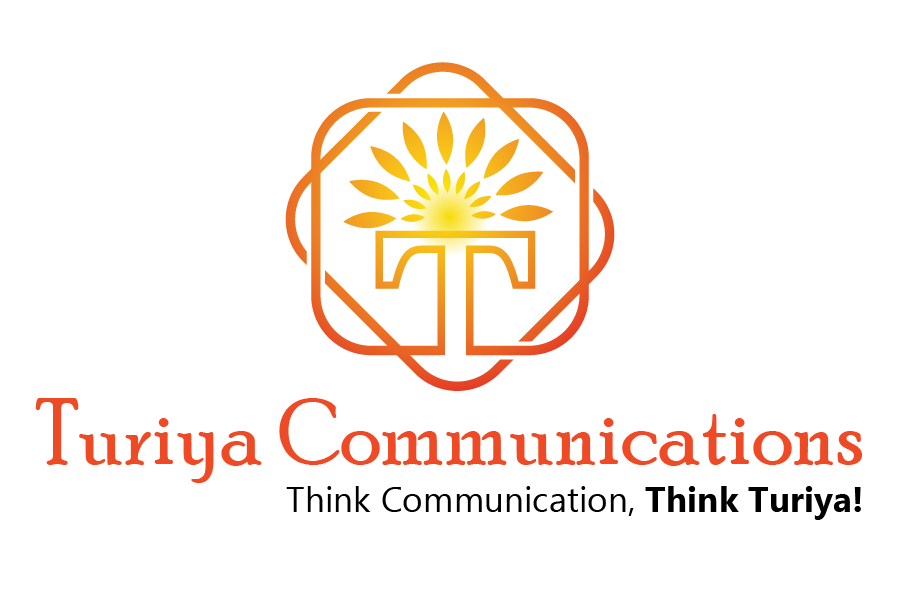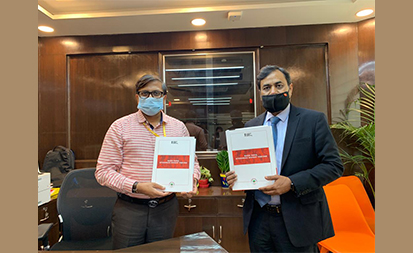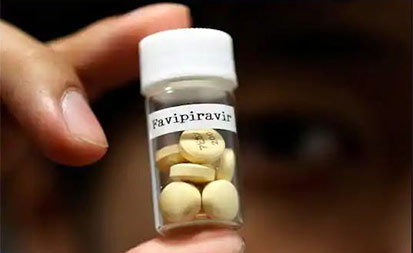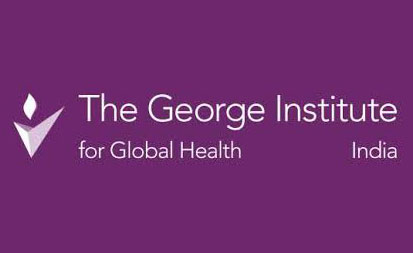Communication for Healthcare: Monitoring Your Social Media Health by Dwaipayan Purkait, Rishav Bagchi & Sandhya Sutodia.
As the entire world is confronted by a pandemic, the importance of doctors and hospitals are getting highlighted every day. During these turbulent hours, the needs and demands from doctors and hospitals are also changing.

As the entire world is confronted by a pandemic, the importance of doctors and hospitals are getting highlighted every day. During these turbulent hours, the needs and demands from doctors and hospitals are also changing. Doctors are not only having to treat their patients to get them fit and healthy, but they also have a role in communicating with the wider society about how people should conduct on a daily basis to prevent contracting the virus. The importance of communication from doctors has never been more important and this article sheds light on how important it is to find the right channels of communication for the health industry, doctors to cater to the society in their best interests.
Effective communication is a key concern for health care providers to protect their patients, save on costs, and increase day-to-day operating efficiency. Meanwhile, patients benefit from increased access to their medical histories, which reduces chances of medical errors, when the communication process is handled with great competence.
MONITORING THE PULSE OF HEALTH CARE SOCIAL MEDIA
Lockdown has piled up losses for businesses throughout the world. Now, more than ever, having an online presence is necessary as online reputation management is an essential component of healthcare marketing. This new media phenomenon has become a boon for organizations as it offers direct engagement and dialogue with customers and an unprecedented opportunity to build relationships and affinity.
The only industry which is trying to utilise its full potential to prevent any unfortunate life loss is the health care industry. With healthcare constantly evolving, public-relations is proving to be essential moving forward. People working in healthcare public relations specialise in handling internal and external communications for healthcare companies, from helping promote products that improve quality of life to helping clients navigate some of the world’s dilemmas, this worldwide pandemic is also sending shockwaves through the global economy. The healthcare industry continues to evolve and adjust to the extraordinary needs of fighting the Covid-19 crisis. Worldwide, both primary care doctors and healthcare providers are adopting digital options to deliver patient care.
In the current scenario, telemedicine and telehealth may turn out to be affordable, as well as the fastest, way to not only bridge the rural-urban health divide but also manage the Covid-19 crisis. If doctors, nurses and paramedical staff need to be quarantined, it could lead to a disastrous situation. Telemedicine enabled virtual visits by registered medical practitioners (RMP) can be conducted without exposing staff to viruses/infections in the times of such outbreaks, thus, preventing the transmission of infectious diseases and reducing the risks to both health care workers and patients. All the management work has shifted digitally and all the brands are busy in marking their presence on different social media platforms like Facebook, LinkedIn etc.
Communication on social media happens instantly in real-time, which also means that it raises the stakes. It is not like issuing a press release with a typo or misinformation, and then having the opportunity of resending it. On social media, once the information is out, it can be seen and shared forever. Even if a post is deleted, there are high chances that it has been already screenshotted and shared by countless followers. When it comes to crisis management, social media can be an essential communication tool in today’s digital world. However, if not used strategically, it can also turn the crisis worse than ever. In a perspective from healthcare management, an online presence can save lives. It’s filled with ascendancy with just a click on the mouse.
Why Is Your Reputation on Social Media Important?
Earlier people used to know about doctors from govt hospitals but that entire situation has changed now. Social media opens up many opportunities for health systems. It allows organizations to build connections, share discoveries, and develop credibility as thought leaders. Through platforms like Twitter and Facebook, physicians and health systems can share relevant health alerts, receive patient feedback, and bolster their brand with a focus on creating trust. By communicating with patients online, hospitals and physicians establish the foundation for a positive relationship. In addition to this, precisely targeted ads via social media platforms assist in personalized patient outreach. As an organization in today’s world, you need to be concerned about the portrayal of your image on social media and keep a check of how people are believing in you. Whether you choose to participate or not, you will be highlighted when the news is bad. Hence, the tariff of the main health care issue is about how the consumers are going about through this crisis.
Here are a few reasons as to why you should be concerned about social media’s influence over health care:
Stop doing promotion
One of the advantages of social media is that everything happens in real-time and its ability to operate on a large-scale. Brands have a huge list of subscribers, email lists, followers and fans should stop all the promotion instead should spread measures that in return educate people and help them stay protected. Pharma companies can use social media platforms more often to advise people to lead a healthier life by maintaining proper hygiene and food habits. A pharma company should never promote as it wants its products to be sold where they should create their image in such a way that they want to prevent people from falling ill.
Awareness
Promote awareness using your brand on social media like Facebook, Instagram,Youtube, Twitter, and more. Organizations should give a couple of days off to their employees in the event of a Global emergency and encourage remote work and keep the operations running without hindering one’s economy. Awareness about the ongoing pandemic and its corrective measures should be updated regularly and the policies which govt takes the pharma companies should always promote them and also suggest the best possible strategy that can be taken in the future. To make it believable executives need to use persuasive and lucid language when they interacting with the general public.
Social search
Google’s recent implementation of social media in its search results brings real-time conversations to the first page. Twitter users are enamoured of hashtags, and just adding a hashtag in front of a brand name in the search section, Twitter acknowledges the latest news and information about that very brand. Adding the hashtag in front of the name reveals the brand on the first page of search results.
You can see why social search could be very influential on a searcher’s perception of a brand. Likewise, many other brands and companies are contributing to their health care programs through this similar process.
Join hands to help
Organizations of all sizes should join hands to help in this cause and show that there is hope during this difficult time. Suppose a pharma company develops a vaccine then all the other companies should promote that vaccine for the greater benefit for the society. A number of these pharma companies and pharma startup has extended their help to both central and different state governments. Whether it be a financial, diagnostic or research aid, contribution in both financial and emotional assistance to people through tweets, Instagram and Facebook posts will also attract other fans and influencers to initiate help.
At critical times like this everybody should lookout to everyone and such actions are needed to be encouraged. Many news like these originated from every corner of the country; for instance, people in different communities helped the cops by providing food and water, the Sikh community in Punjab assisted the poor sections of the society, doctors were welcomed like heroes to their homes. This is our opportunity to become humane and sympathetic towards each other.
Managing a Crisis through Social Media influence over healthcare
Social media is a public space; your fans and followers have the right to make negative comments. It is your job to turn those negative comments around and to change it into a positive one. To do so, let us look at some of the best practices for using social media:
- Monitor your business on social media and respond to tweets, mentions, and comments on your company’s profiles promptly. If your social media team is small, consider investing in monitoring software that will help your team stay on top of negative comments, viral stories, and brand mentioning health care solutions. It often happens that people drop harsh comments about products or even about doctors – In these situations, it is absolutely necessary to reply back in that same post and try to understand the discomfort of the customer. The harsh comments should not be deleted but the solution to that problem should be present there. This way the trust in the organization remains intact. Any company should always defend its digital presence but at the same time, it should not hurt the ego or sentiments of the viewers.
- Avoid slow and deferred response on social media as an information vacuum can lead to people’s criticisms and speculation about your company. Slow responses are taken as signs of ignorance from the company’s side. Since social media works in real-time, the faster you respond, the better your customer service will look. It will also reflect your company’s commitment to your customers. With prompt response and customer service, clients or the customer will feel free to contact the company and this way the company will be able to serve their customers better.
- It is often said that everyone has a critic online, which can make it easy for tensions to flare. Train your team to respond to social media followers in a way that is polite, truthful, and on point. The aim should be to provide service to the customer and nothing else. Your team should communicate with users like a physician or a healthcare consultant and if something unknown happens then they should contact the higher authorities immediately. If someone starts posting inflammatory or outright false statements, it might catch time to block the user or reach out to him or her directly. The corrective post should also be circulated in different pages that the false statement was shared upon. To tackle information miscommunication all an organization can do is to take proper responsibility for it and make this normal as soon as possible.
- If a conversation is going against you, a rule of thumb is to take it “offline” – whether in a private message, email, or phone call, after a few attempts at civil conversation. Suggest that your customers can contact you privately to send their email address or phone number for more in-depth discussion. There is no need to serve a customer if he/she behaves unnecessarily rude to the executive. The Internet should be a place for civic communication and discussion.
- On Twitter, your customers can follow you, so that they can message you directly. On Facebook fan pages, you can share a personal profile that can be used by the customers to get in touch with you about any issue. On YouTube, customers can visit your company’s channel and send a message. Top executives can also come on live sessions on different social media platforms to address the general customer pool. It only increases the presence of your company in your customer’s minds.
- Remember that aside from furtive messaging, anyone can read conversations between you and your customer. Hence, it is important to yield great customer service, so that it can go a long way in impressing your customers and increase their likelihood of giving you positive referrals. In these situations, replies should be made keeping the general public in mind. Strong or too much technicality should be avoided when the comments are made public.
Before the next crisis hits your area, build up strategic plans and drafts which can be used later. You can tweak the content for the specific situation when it occurs, but having at least a framework response will save time and energy when it matters most. During a crisis, you have to make it your obligation to be responsive to all inquiries and concerns. It will not just help you to create a good relationship with your customers but also increases the authenticity and trust for your brand and your profile. The focus should always be on the long-run customer value creation all the time.
Wrapping Up
Healthcare has always been an important and sensitive issue amongst our populace. By combating wrong information and spreading awareness among the clients. Many healthcare centres have taken to public health monitoring through social media sites which is beneficial in the long run. The new media has always been successful in helping out the public and the patients. Another aspect of this act is by listening efficiently to the consumers and then rectifying their clients. There should also be alternative plans and educations provided to the clients. One should first listen and then act accordingly to it. The healthcare perspective through the hands of social media can take the generation into another leap of the world. There should always be creative empathy for every plan and project. However, now the different social media handles are providing different forums to connect to the clients and patients. Digitization has given a new look to all the health-related problems. As a result, people are now keener to get information related to their health issues from all the respective social media sites and handles.






